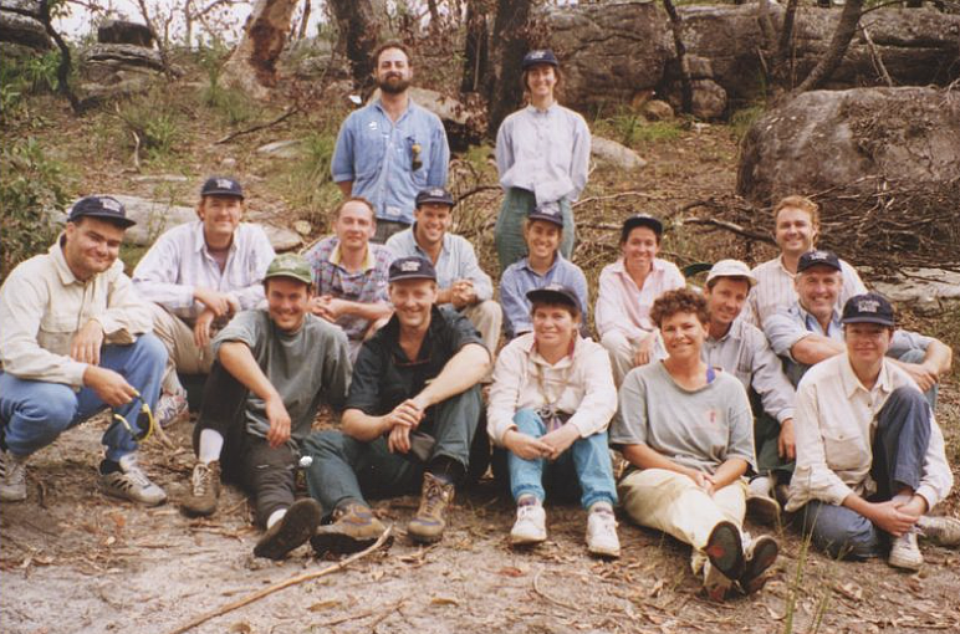
ICDA and BoardPro partnership unlocks digital governance tools for not-for-profits nationwide
Posted on 10 Dec 2025
Adele Stowe-Lindner, Executive Director, Community Directors The Institute of Community Directors…
Posted on 19 Mar 2024
By Matthew Schulz, journalist, Institute of Community Directors Australia

Early results from three reviews into the community sector are expected to start landing on the desks of the country’s politicians and bureaucrats within days, but the sector’s main advocacy body has urged those producing the reports not to generate “vanilla” studies that lack substance.
The keenly awaited studies are:
Hundreds of community organisations, charities and NFP advocates – including Our Community, the parent organisation of the Institute of Community Directors Australia (ICDA) – have lodged submissions to some or all of the studies.

Community Council for Australia chief executive David Crosbie said his main fear was that the results would be so vague as to do little to improve the lot of NFPs and charities, and by extension their beneficiaries.
“Here’s the question to ask of most government or expert group reports: what is it we or others currently do that will no longer be acceptable?
“Far too often, these reports are so vanilla, there is nothing that they rule out, everything can be done, so no change is needed. They are written as a set of words everyone can agree to and then carry on business as usual.
“It’s like they announce they’re going to build a road, they call for submissions, they hold public inquiries, many people put forward their views about the route and how it could be built. Unfortunately, what they offer you in the end is a massive car park – take off in any direction you like, but don’t expect to get anywhere.”
“I’d like to see each of these reports taking a much stronger stand, and actually moving us forward beyond a set of words we can agree to, even if the direction is not exactly what I might recommend.”
The DSS is handling the consultation process for both the community sector funding review, which is aligned with the government’s election commitment to “a stronger, more diverse and independent community sector”, and the NFP Blueprint.
“I’d like to see each of these reports taking a much stronger stand, and actually moving us forward beyond a set of words we can agree to, even if the direction is not exactly what I might recommend.”
According to the DSS, the blueprint investigation attracted 160 submissions, while an associated series of virtual forums drew input from 97 organisations.
A spokesperson said the submissions and feedback from the blueprint issues paper were “currently being synthesised into a summary report to be published alongside original submissions in late March or April”.

In addition, expert advisors are in the process of developing recommendations to be considered by the Blueprint Expert Reference Group (BERG).
One of the advisors is UWA economics professor David Gilchrist, who last week said he would recommend to the BERG a revamp in the way funding was allocated to NFPs.
Professor Gilchrist believes inflation is outpacing funding for charities and other NFPs, and he has called for the establishment of indexation that reflects real sector costs and wages.
Separately, the review into grant funding arrangements for community organisations attracted even more interest, with 240 submissions made in response to the issues paper A Stronger, More Diverse and Independent Community Sector.
A spokesperson said the DSS was currently preparing a summary report of that consultation. This was expected to be published by the end of April, with submissions to the inquiry also publicly available then.
The department did not respond to a request for a firm date for the release of the final report.
“The department is developing recommendations to government and working with its Community Services Advisory Group and other government agencies throughout 2024, to consider findings from the consultations and develop and implement an action plan to deliver on this commitment,” a spokesperson said.
The most comprehensive of the reviews appears to be the Productivity Commission’s inquiry into philanthropy.

Charities Minister Andrew Leigh has previously described the work as a “once‑in‑a‑generation review of philanthropic giving in Australia”.
“The goal of the review is to boost donations to charities and meet the Australian Government’s goal of doubling philanthropic giving by 2030,” he said.
That inquiry has drawn by far the most interest, with 742 submissions lodged.
Its interim 338-page report last year called for an overhaul of deductible gift recipient (DGR) tax rules to boost donations to charities, describing existing rules as “not fit for purpose”.
That report also called for a better regulatory framework for charities, and increased transparency in the work of the Australian Charities and Not-for-profits Commission (ACNC).
Our Community calls for big shift in community sector funding

Posted on 10 Dec 2025
Adele Stowe-Lindner, Executive Director, Community Directors The Institute of Community Directors…

Posted on 10 Dec 2025
The Australia Institute has called on the federal government to force Australian businesses to be…

Posted on 10 Dec 2025
Economic empowerment is essential to enabling recovery, restoring agency and preventing future…
Posted on 10 Dec 2025
A long-time advocate for rough sleepers in northern New South Wales has been named her state’s…

Posted on 10 Dec 2025
What a year 2025 has been, particularly at a national level where the Parliament and politics as we…

Posted on 10 Dec 2025
Anyone working in an organisation knows it: meetings follow one after another at a frantic pace. On…

Posted on 10 Dec 2025
As a qualified yoga instructor who learned the practice in her hometown of Mumbai, Ruhee Meghani…

Posted on 10 Dec 2025
Community Directors trainer Jon Staley knows from first-hand experience the cost of ignoring…

Posted on 10 Dec 2025
Stressed, overwhelmed, exhausted… if you’re on a not-for-profit board and these words sound…

Posted on 10 Dec 2025
The Institute of Community Directors Australia trains over 22,000 people each year, which gives us…

Posted on 09 Dec 2025
The late Sir Vincent Fairfax is remembered as a business leader, a chairman of AMP, and an active…

Posted on 08 Dec 2025
A pioneering welfare effort that helps solo mums into self-employment, a First Nations-led impact…